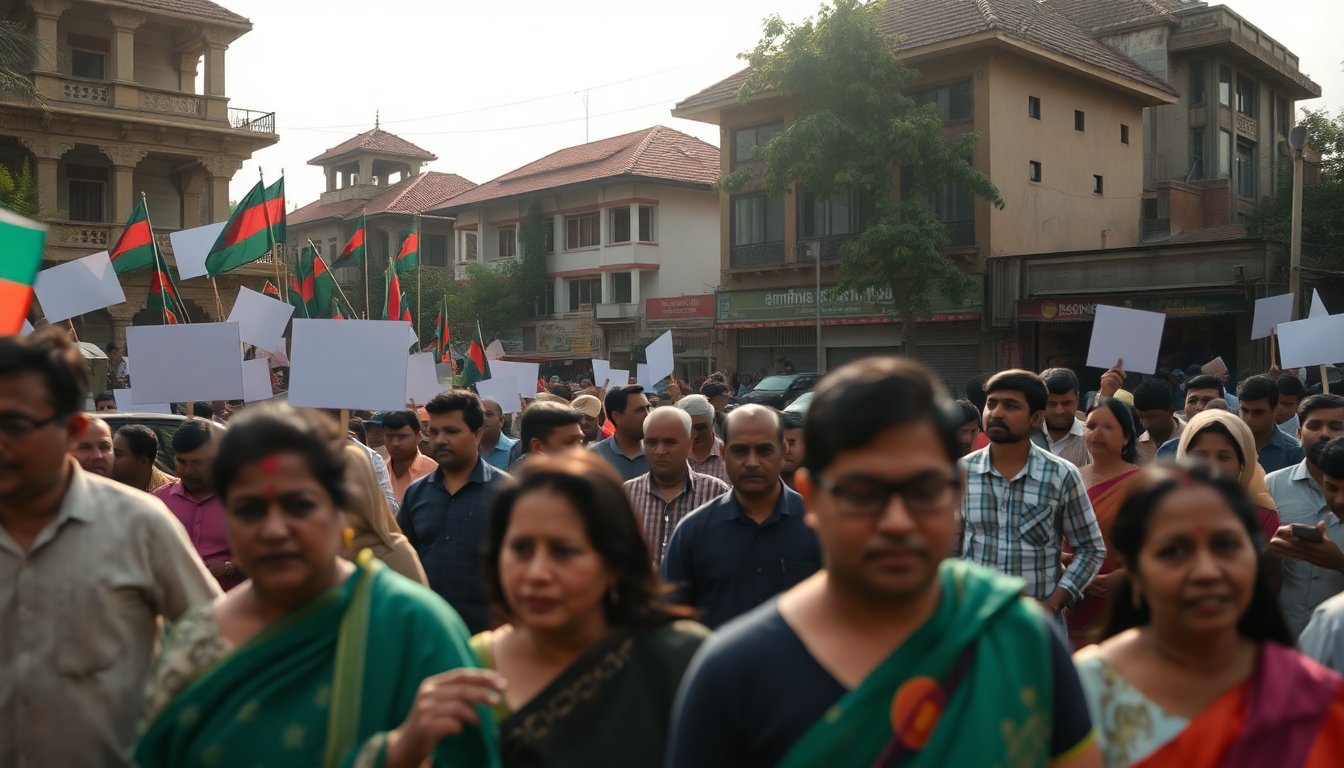Table of Contents
The political landscape in Bangladesh has been dramatically altered following the recent conviction of former Prime Minister Sheikh Hasina. Currently in exile in India, Hasina has been sentenced to death by a special tribunal for her alleged role in a violent crackdown against protesters during a wave of civil unrest in. This verdict not only marks a pivotal moment for Hasina but also for the future of political accountability in Bangladesh.
The trial, which Hasina did not attend, has been a focal point of controversy, with many viewing it as a politically charged maneuver by the interim government, led by Nobel laureate Muhammad Yunus. As tensions rise, the implications of this ruling reverberate across the region.
The trial and its implications
The special tribunal, known as the International Crimes Tribunal (ICT), was established in to address crimes against humanity from Bangladesh’s 1971 war for independence. However, its use has been criticized for allegedly targeting political opponents. Hasina was tried in absentia, facing multiple charges related to her government’s brutal response to the protests that erupted in July.
Details of the conviction
During the protests, which were primarily led by students, a tragic death toll of approximately 1,400 individuals was reported. Allegations against Hasina include incitement to violence and a failure to prevent atrocities committed by security forces. The tribunal found sufficient evidence to convict her on several counts, issuing a death sentence for her direct orders to use lethal force against demonstrators.
Among the evidences presented were leaked conversations where Hasina allegedly authorized the deployment of drone strikes and other military tactics against unarmed protesters. Such revelations have fueled accusations that her governance was characterized by systematic human rights abuses.
The political context of the verdict
This ruling comes in the wake of significant political upheaval in Bangladesh. Following Hasina’s ousting in, the interim government has moved to dismantle her political party, the Awami League, citing national security concerns. This has led to widespread allegations of political repression, raising concerns about the legitimacy of the current regime.
Reactions to the verdict
Hasina has denounced the tribunal as a kangaroo court, claiming the proceedings were heavily biased against her. In her statements, she has called for a fair trial, expressing a desire to return to Bangladesh under different circumstances. Meanwhile, the interim government has sought to project an image of accountability, positioning this verdict as a step toward justice for victims of the government’s violent crackdown.
Many experts and human rights advocates view this event as a critical juncture for Bangladesh. The ruling may pave the way for further scrutiny of political figures and their actions during times of unrest. However, the question of whether true justice can be achieved remains open, especially as Hasina continues to claim her innocence.
International implications and future steps
As the situation unfolds, international observers are closely monitoring the potential for Hasina’s extradition from India, where she currently resides. An extradition treaty between Bangladesh and India exists, but political motivations could hinder Hasina’s return. Experts suggest that India is unlikely to extradite her, considering the complex diplomatic relations between the two nations.
The outcome of this case could have far-reaching consequences not only for Bangladesh but also for regional stability. It raises essential questions about how democratic principles are upheld in the face of political strife. The interim government must navigate these turbulent waters carefully, balancing calls for accountability with the need to maintain social order.
In conclusion, Sheikh Hasina’s conviction is a significant development in Bangladesh’s ongoing struggle for political stability and justice. As the country prepares for upcoming elections, the implications of this verdict will likely influence both the political landscape and the broader discourse surrounding human rights in the region.


